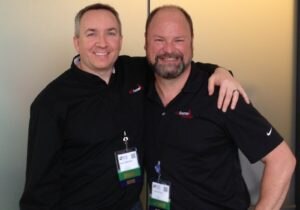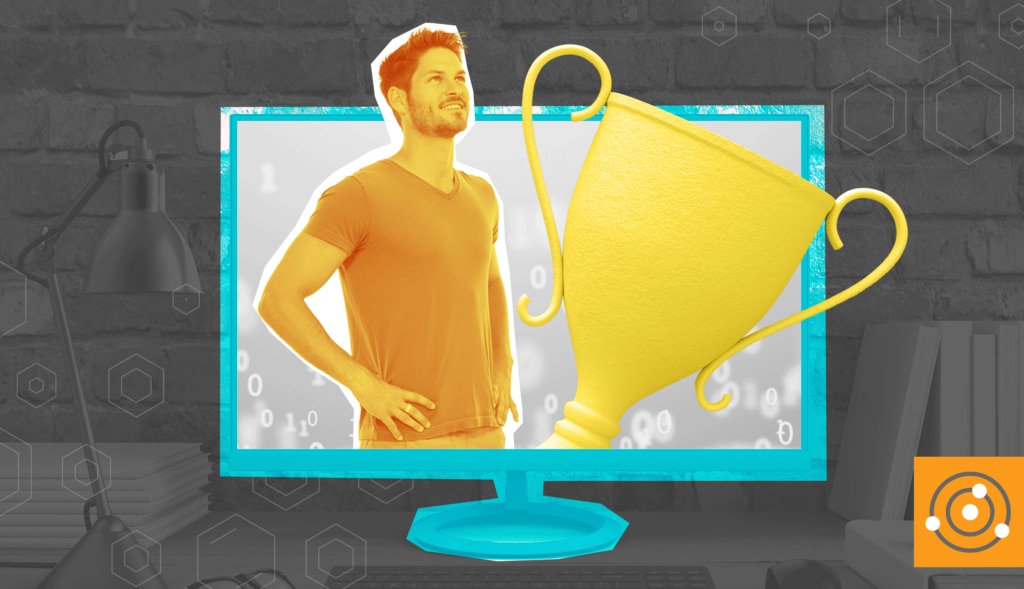What is a Microsoft MVP?
The Most Valuable Professional (MVP) designation is a recognition of an independent individual's contribution to the wider community in support of a specific Microsoft technology. Note the emphasis on community, not technology. Microsoft thoroughly explains the entire program on their MVP overview page. In their words:Microsoft Most Valuable Professionals, or MVPs, are technology experts who passionately share their knowledge with the community. They are always on the "bleeding edge" and have an unstoppable urge to get their hands on new, exciting technologies. They have very deep knowledge of Microsoft products and services, while also being able to bring together diverse platforms, products and solutions, to solve real world problems. MVPs make up a global community of over 4,000 technical experts and community leaders across 90 countries/regions and are driven by their passion, community spirit, and quest for knowledge. Above all and in addition to their amazing technical abilities, MVPs are always willing to help others - that's what sets them apart.

MVP Aaron Bertrand and me at SQL Saturday Dublin in 2014
There are several benefits to being an MVP, such as an MSDN Universal subscription and access to very early product previews. However, my favorite benefit is access to the people you normally wouldn’t meet. You can talk directly with the Microsoft developers who work on your technology and the other MVPs in your award category. When you become an MVP, you can always say "I may not know the answer to your question, but I know someone who does." On the other hand, there are also responsibilities, such as the official MVP Code of Conduct, as well as non-disclosure agreements you must sign. It is very possible to lose the MVP credential if the awardee fails to meet the standard for ethics, professionalism, and discretion.Tips for Becoming an MVP
So, back to the original question about how to become a Microsoft MVP. Read what Microsoft says, and then I'll add my own thoughts on the topic.There are three very simple steps: Be an expert, do lots of what you love, and let us know! Really, there isn't a long checklist of things you need to do to become an MVP. The best MVPs really excel in step #2: they LOVE what they do. And we can tell! Whether you're a great speaker, have a talent in blogging, lead a top technical community, are a social media superstar, a top GitHub or StackOverflow contributor or have a totally different and cool way to share your passion for our products and services, we'd love to know more!

MVP Regis Baccaro, now a Microsoft employee, with me at SQL Saturday Denmark in 2016
Now, let's parse the Microsoft wording to get to some specific and actionable information you can use on your mission to become an MVP.Be an Expert and Share That Expertise
This recommendation is not as stringent as you might think. In my opinion, this point means "be technically competent in your award category and find your niche, then spread the word." To further explain:- Public expertise: You have to be technically competent in the public sphere, but not necessarily an expert. Many folks have a preconception that all MVPs are uber-nerds. While often true, it’s not a rule or requirement. Consider the flip side. All the award categories need bloggers and speakers who are great at explaining the basic concepts in simple terms. That skill is a precious gift and if you have it, leverage it.
- Beware saturation: Getting the MVP nod can be easier in newer, less saturated topics of an award category. Let's say you want to become a Data Platform MVP like me. If that's the case, I won't try to steer you away from the standard database management topics. But there are already many MVPs with that specialty. On the other hand, there are very few who are talking about many other important topic areas like in-memory OLTP, the intersection of SQL Server and Data Science using R or Python. It’s certainly okay to go where there are many other existing experts. But to use an analogy, it's easier for your voice to be heard in a chorus of five singers than of fifty.

Me with fellow MVPs and former PASS Presidents Bill Graziano and Rushabh Mehta, 2015 PASS Business Analytics Conference
- Align with Microsoft motivation: Microsoft spends literally millions of dollars supporting the MVP program worldwide. MILLIONS, I SAY! Why would they do that? By spending this money today, they either save a greater amount of money or make even more money in the future. In the old days of the 2000s, the MVP program used to align with the Microsoft Support organization. At the annual MVP Summit, they would tell us things like "Your tireless efforts on the discussion forums answered 14 gazillion user questions!" And we'd all cheer, mostly because Bill Gates or Steve Balmer used the word “gazillions” in an official speech. But what it really meant was we saved the Microsoft Support team from having to answer all of those questions themselves. And it also helped Microsoft from losing customers out of frustration with their products, which costs exponentially more money. My opinion is Microsoft motivation is no longer motivated by user support (a cost-savings strategy) but driving adoption (a revenue generation strategy). That is, encouraging the wider world to adopt and use Microsoft products and services. So, if you can align your externally facing MVP-worthy activities in such a way that it encourages further adoption of Microsoft stuff, you're in the best possible place. (And I think Azure adoption is the most salient of the technologies where they want to drive adoption). The more you can align with what motivates Microsoft, the better your chances.

Me with MVPs Kalen Delaney, Steve Jones, and Peter Ward , SQL Saturday LA 2017
Do Lots of What You Love
I can't emphasize enough the word lots. In the old days, when Support issues were the main motivation, there was a rumor that if you correctly answered fifty questions in the forum per week, you had a pretty good shot at an MVP accolade. Now keep in mind it’s only a rumor. But it’s also an indication of the amount of work it required to be competitive. Lately, though, most MVPs earn their position by virtue of frequent writing, speaking, and other public-facing activity. Today, I can tell you most MVPs I know do so much of their chosen award-related activities, they typically have to give up some other activity to make it all fit into their lives. They also spend relatively little time on simple leisure. In my case, I watch relatively little TV or sports. (And if I'm honest with myself, I don't spend as much time with my family as I'd like). Are MVPs workaholics? Perhaps. But even if there were no benchmark for how much activity is enough activity, consider the award from a competitive standpoint. The MVP accolade, by its very nature, represents the top X% of people actively working in your chosen award category. It’s very competitive getting unto the upper echelons of a given profession and others may out-compete you. It will likely require more than two activities per month, such as blog posts, YouTube videos, articles, Github projects, or event sessions. Microsoft does an excellent job of telling you there are many different ways to achieve MVP status. Take my former colleague and friend, Aaron Bertrand. Aaron is one of the earliest awardees and is among the most durable ever to receive the award. Back when Aaron started on this path, he mostly answered questions in the discussion forums. In fact, he answered so many questions, which were largely the same thing over and over again, that he created a website just to answer those frequent questions. He now moderates Database Administrators, a fantastic Stack Exchange Q&A forum for all things related to databases. Others, such as the inimitable Buck Woody, before his days as a Microsoft employee, received his award for frequent high-quality writing on a website called InformIT. Another former colleague of mine, John Martin, got his award for tirelessly speaking across the U.K. and Europe, as well as his leadership of the Southampton SQL Server user group jointly with his wife, Steph Martin. Chrissy LeMaire, a PowerShell MVP renowned among SQL Server DBAs for her scripting work at dbatools.io (along with many other contributors), received her award in 2015 due to her work evangelizing an open-source approach to code and her many scripts on GitHub and in the Microsoft Script Center. In my case, I was awarded the MVP nod at the end of 2003 for my work as a founder and president for PASS. So, toss the myth out the door that only speakers and bloggers get the MVP accolade. There are many ways to earn it.Let Them Know
Many people know Microsoft has a nomination process for the MVP award in which a Microsoft Full Time Employee (FTE) or a current Microsoft MVP must nominate you. That’s another reason you see MVP-wannabes speaking and participating at events—so they can meet current MVPs and Microsoft FTEs. Once you know someone who can nominate you, put together a document showing all your applicable activity. The more you have in the previous 12 months, the better your chances are. Here's a bit of added details for context:- Cycles: MVP awards are granted "cycles" to better distribute the management workload for the MVP community managers. The specific duration of a cycle may vary, but usually happen every quarter. If at first you don't succeed, you’ll have other chances to try again, not just a once per year.
- Caps: Back to my earlier point that the MVP award is exclusive, meaning there are only a few slots open in each award category at any given time. Some Microsoft subsidiaries may also be able to admit people into the MVP program. A small country or region, say the Balkans, might have a dozen or two total MVPs while a large subsidiary, such as the USA, might have many hundreds. You might do everything right, but still not get the award. If this happens, do more activities, then try again.
- Subsidiaries and localities: Microsoft subsidiaries used to have hard limits on the number of MVPs allowed in their region. The old approach gave the regional subsidiaries full decision-making authority for selecting MVPs in their region. Now, regional subsidiaries still have a great deal of influence, but other decision-makers are likely to be involved in the process. I think the safest bet is to know as many people within Microsoft and the MVP community as you can. If there is a local Microsoft presence, say a Sales office, get to know those folks. Join the various public Advisor programs related to your award category and start participating in the discussions there, so the Microsoft program teams in Redmond recognize your name. Like in traditional professional networking situations, the more people who know you, the more likely you are to make positive headway.
- Not an algorithm: My last tip about the MVP nomination process is it's not something churned out by an AI algorithm. It’s a manual process performed by real human beings. So please don’t get angry or lash out if the process seems inconsistent or slow.
A Final Recommendation

Some of my MVP Memorabilia
Here's one final recommendation. Are you guaranteed to receive the MVP award even after turning out a prodigious amount of blogging, conference sessions, books, videos, podcasts, or open-source code? Absolutely not. It's possible your content simply doesn't align with the motivations Microsoft has. For example, your activities might be relevant, but only to a tiny audience. Or it might merely be a case of being in the wrong place at the wrong time, metaphorically speaking. Microsoft deprecates technologies all the time. Silverlight anyone? It could be a case where your content focuses on something people inside of Microsoft know has a limited lifespan. And finally, there might not be any particular reason at all. It's their party, and they get to write the guest list. All of this also points back to why it's essential to get feedback and mentoring from other MVPs who can help you determine if you're on the right track or not.Let’s Summarize
I’ve given you a lot of details about the MVP program, including how to get a nomination and how to make the process as easy and effective as possible. Now, let’s summarize all those points:- Recognize why Microsoft has an MVP program and align your activities with those motivations.
- Be a public expert in a space where Microsoft wants to drive adoption. Help in the community a
- Get to know as many Microsoft FTEs and current MVPs as you can. Then ask for their help getting a nomination.







